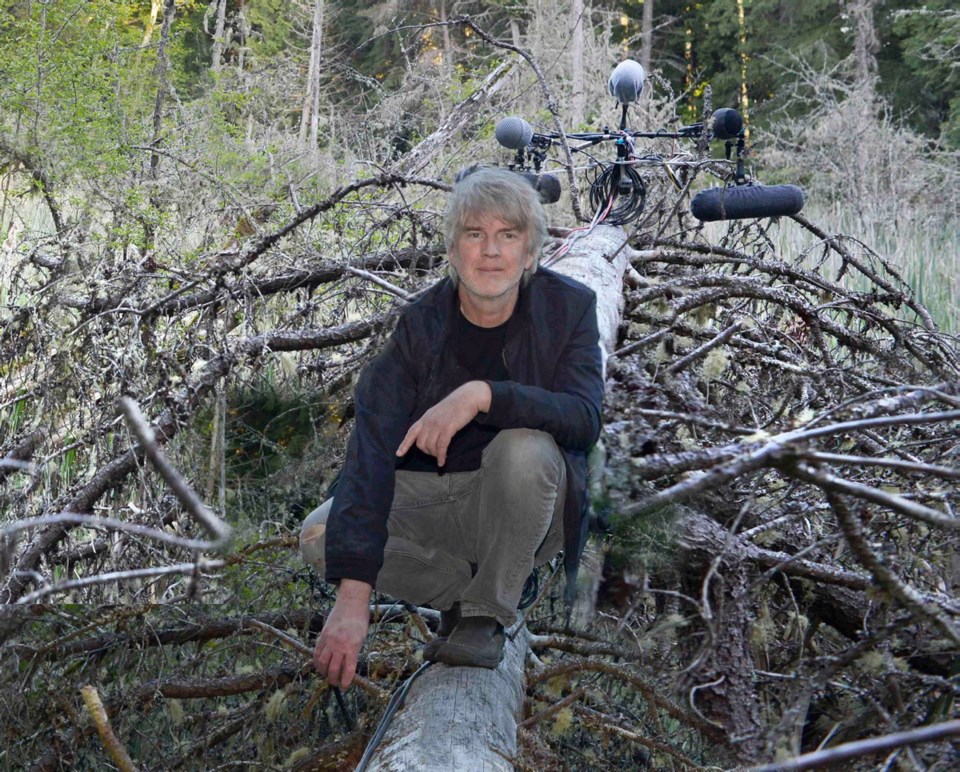At the Saturna Lighthouse Pub, weekends are typically filled with the sound of clinking beer glasses and hockey games on five TV screens.
But this Saturday, on Earth Day, it’ll be different. All day and night, the Saturna Island bar will be suffused with the dulcet tones of croaking frogs, buzzing bees, hooting owls and quacking ducks. The pub is tuning into a marathon radio broadcast of a 24-hour recording that captures the natural sounds of a marsh on the island.
Crystal, a server at the Lighthouse Pub, said the bar is “very excited for the event.”
This despite the fact that there are several NHL playoff games slated for Saturday, including Edmonton vs. San Jose and Montreal vs. New York.
“If someone really wants to see hockey, we can put them in our TV room, which is kind of separate from everything else,” she said.
The Lighthouse Pub is participating in something called the Wetland Project. The brainchild of Mark Timmings, a Saturna Island graphic designer and artist, the Wetland Project field recording will be broadcast in its entirety on Vancouver Co-op Radio (100.5 FM) to celebrate Earth Day.
Timmings believes it will be the longest continuous radio broadcast in Canadian history.
Having access to such a recording is good news — especially if you love Pacific Chorus Frogs. These are the frogs that live in the marsh across from Timmings’ home, where the recording was made. The frog-bee-owl-duck symphony will also be broadcast worldwide Saturday via wetlandproject.com. (If you click on it today, you can hear a sample.)
The computer broadcast will be accompanied by “colour visualizations” triggered by the nature sounds. This will no doubt be welcomed by those who fondly remember 1960s-era Grateful Dead concerts and/or enjoy soon-to-be-legal herbal products.
In fact, the Saturna marsh soundtrack will air on radio and web for more than 24 hours. The fun starts at 4 a.m. Saturday and continues to 7 a.m. Sunday, with three hours of repeat animal sounds at the end.
At the risk of raining on Timmings’ (and the Lighthouse Pub’s) parade, I asked who would possibly sit through 24 (or 27) hours of frog and bee sounds. With the infinite patience of someone trying to explain Wagnerian opera to a Justin Bieber fan, he said it doesn’t work like that. You’re supposed to have the nature sounds on in the background, while you go about the day’s activities.
Timmings has already tried it. He played the recording over 24 hours in his own home. Overall, it had a calming effect — although he was startled to hear a woodpecker that had ventured close to the microphones.
“It felt like this woodpecker was in my kitchen, pecking away in the cupboards, trying to scrounge up some food while I was preparing some dinner.”
I asked Timmings what kind of meal he was preparing at the time of the woodpecker crescendo.
“It could have been spaghetti. I don’t know,” he said.
Light is a key factor in triggering animal sounds. For instance, the first hint of dawn light prompts birds such as robins to sing. Things slow down in the heat of midday. At dusk, the frogs (the Pacific Chorus Frogs, the ones you typically hear in Hollywood movies) really crank it up.
“The night-time is pretty much about this intense chorus of frogs,” Timmings said.
“It sounds like there’s millions of them.”
The field recording was made a year ago on Earth Day. Timmings enlisted the help of Eric Lamontagne, a Victoria recording engineer who has worked in the movie industry. Lamontagne arrived with $50,000 worth of gear, including 10 microphones.
Five microphones were set up on a stepladder in the marsh, which isn’t deep. The other five were placed on a fallen log in the middle of the marsh. There was no electricity, so they improvised with car batteries.
It worked out pretty well. There was a technical malfunction with the stepladder microphones, possibly due to humidity. However, the team got a decent surround-sound recording with the log mics.
No editing was done to pretty up the recordings. You can occasionally hear automobiles or planes passing. This just reminds us of humankind’s influence on nature, Timmings said.
I asked why one couldn’t just visit the local marsh or forest to fill one’s boots with nature sounds.
Timmings made it clear that such a philistinic point of view misses the point.
“[With this recording] you’re not going into nature. Nature is coming into your home, into your condominium, wherever you live. You’re comparing your daily activities to their daily activities,” he said.
He plans to spend most of Earth Day listening to his nature recording in the Lighthouse Pub. Needless to say, Timmings will not be in the hockey/TV room. He’ll arrive at noon and depart around 10:30 p.m., which is closing time.
Timmings added: “I have to be careful not to start on the beer too early.”



